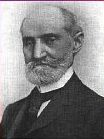Fever
Characteristic – Adapted to the child with dark hair, very cross, irritable, ill – humored, wants to be carried, but carrying gives no relief, does not want to be touched, cannot bear you to come near it, averse to caresses, desires many things but rejects everything offered (Ant.t., Bryonia, Chamomilla, Staphysagria), uneasy, distressed, rubs or picks the nose all the time (Arum triphyllum), pitiful weeping when awake, starts and screams during sleep, suffers from worms.
Face is pale, sickly appearance around mouth and eyes, dark rings around the eyes, one cheek red the other pale (Chamomilla).
Canine hunger, hungry soon after a full meal, craves sweets, and many different things.
Child is afraid to speak or move for fear of bringing on a paroxysm of cough (Bryonia).
Urine: turbid when passed, turns milky and semi-solid after standing, white and turbid, involuntary.
Intermittents of nervous, weakly, scrofulous children.
Aggravation: At night.
Type: Quotidian, quartan, tertian, regular, periodicity pronounced, continued fevers of children.
Time: 1 P.M., afternoon or evening. At same hour every day (Aranea, Ced.). Evening, fever lasting all night (nursing children).
Daily fever (without chill) at same hour.
Cause: Intestinal worms, eating sweets and pastry.
Prodrome: Ravenous hunger, nausea, vomiting of food, and diarrhea, and vomiting of bile (when the stomach is empty), pale face, with blue margins around the eyes.
Chill: Without thirst. Febrile shuddering over the whole body, with hot cheeks, without thirst. Chill extends from upper part of body to head, even by the warm stove. Shivering creeping over the trunk, so that trembles even by a warm stove, not ameliorated by external warmth (chill aggravated by external heat, Ipecac.). Coldness of the pale face, with warm hands, cold face, cold cheeks, cold sweat on forehead, nose and hands. Evening paroxysm of nursing children, heat with hunger and thirst continue all night. Chilliness down the spine. Vomiting.
Chill, followed by convulsions and high fever.
“Predominance of coldness, with cold sweat and continued hunger.” – J.S. Douglas.
Heat: With thirst, mostly in face and head (with red face and bursting headache, Belladonna), face puffed, pale, especially around the mouth and nose with red cheeks, picks and bores in the nose with the fingers, rubs the eyes, restless sleep, starts and screams as if frightened, pupils dilated. Rising heat and glowing redness of the cheeks, without thirst, after sleep. Burning heat over the whole face, with redness of the cheeks, and thirst for cold drinks. Daily fever at same hour, with very short breath. Fever daily in the afternoon. Violent fever, with vomiting and diarrhea (Verbascum – see Elat. ). Fever, vomiting of food, followed by chill all over, and then heat with great thirst. Canine hunger. Heat worse at night, with thirst, with anxiety. Picking finger ends.
Sweat: Without thirst, generally light, cold sweat on the forehead, around the nose and on the hands. After the sweat, vomiting of food and canine hunger, at the same time (hunger after paroxysm, Eup. ).
Tongue: Always clean (Chinas., Psorinum, Sul.).
Apyrexia: Never clear. Hunger even in this stage, though not so marked or so constant. The child had a craving appetite for some time previous to fever, then loss of appetite and desire only for dainties, with vomiting and whitish diarrhea. General ” worm symptoms ” predominate, restless, frightened sleep, urine turbid, turns milky and semi – solid after standing.
The vomiting during prodrome, often during and always after the paroxysm, succeeded by canine hunger with clean tongue, should always call attention to Cina.
In Antimonium crud. the same condition may be present but the tongue is covered with a thick, whitish coating.
In Ipecacuanha the tongue is sometimes clean, but there is nausea, and the vomiting predominates over the diarrhea.
The prostration of Veratrum is wanting, and the mental symptoms are entirely different.
” The child is very whining, peevish and complaining, weeps piteously if one goes to handle or lead him. Great earnestness and sensitiveness, cannot take a joke. Indifference to all impressions. Restlessness. Greediness. Cannot be composed by things at other times agreeable, or by caresses. ” – Carroll Dunham.
“Cina is frequently the epidemic remedy for children when adults require other drugs. Is always to be thought of in patients between two and ten years of age. ” – A McNeil.
Analysis: Canine hunger, the sickly bluish – white circles around mouth, the mental irritability, peevish, whining, complaining children, general “worm symptoms.”
Craves sweets, too serious or sensitive for joking.

